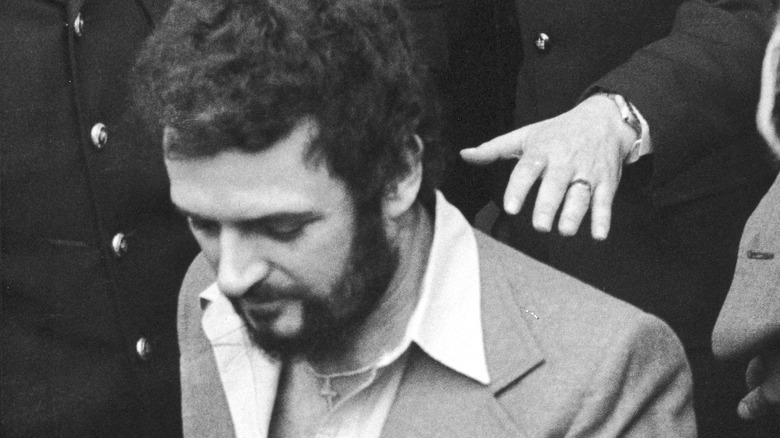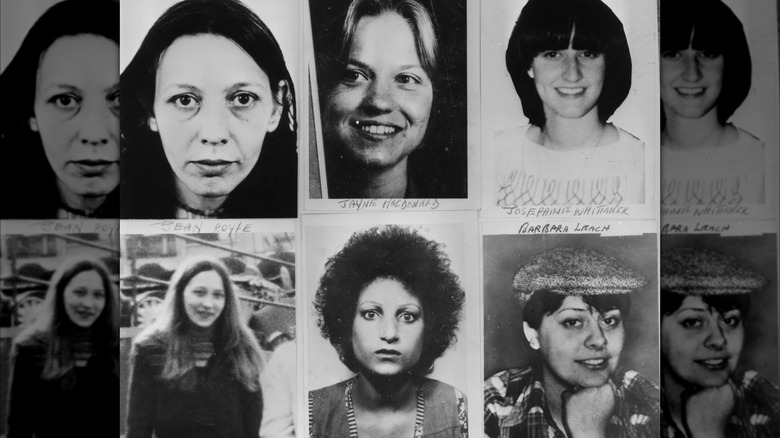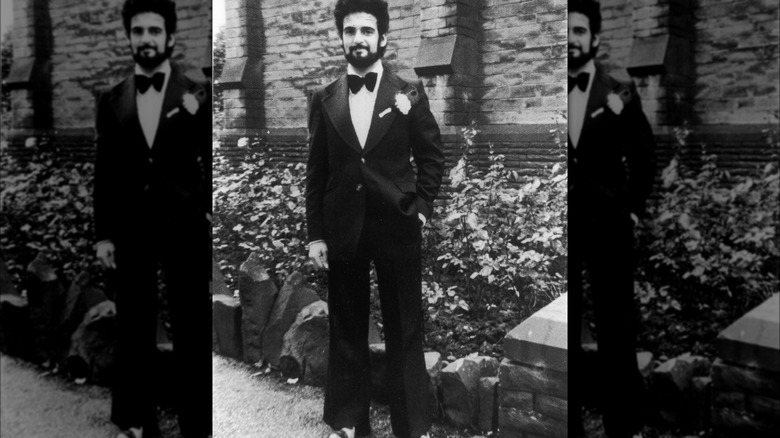How Did Serial Killer Peter Sutcliffe Die?
British serial killer Peter Sutcliffe died on November 13, 2020, at the University Hospital of North Durham. He was serving a life sentence for the murders of 13 women between 1975 and 1980. He pleaded guilty to the attempted murders of seven more. After his 1981 conviction, Sutcliffe changed his last name to Coonan, and because of the nature of his crimes, he was sometimes called the Yorkshire Ripper, The Guardian reported. Before he died, Sutcliffe tested positive for COVID-19. His cause of death was otherwise ruled natural, with the virus a contributing factor. He had known underlying conditions.
Prior to Sutcliffe's death at the age of 74, the Frankland Prison healthcare unit diagnosed him with a blocked heart, a possible symptom of heart failure and cause of sudden cardiac arrest, per Cleveland Clinic. Sutcliffe (pictured) was then transported to the University Hospital, where he was given a pacemaker and twice tested for COVID-19. Both tests were negative. Once back in prison, Sutcliffe's health continued to deteriorate. He was tested again for the virus, and this time the result was positive. From there, Sutcliffe went back and forth between the prison and the hospital as his health was monitored.
On November 10, 2020, Sutcliffe reentered University Hospital and died three days later. The independent inquiry declared he likely caught COVID-19 in the hospital — not in prison. He had previously turned down pandemic prison safety measures. Sutcliffe's body was cremated.
Physical and mental health findings
The independent inquiry revealed Peter Sutcliffe was coughing, vomiting, and had difficulty maintaining appropriate blood oxygen levels before he died. According to Sky News, his postmortem — carried out by Dr. Clive Bloxham — described "heavy, solid and airless lungs, characteristic of patients who have died from COVID." Per The Sun, Bloxham said Sutcliffe had "a nodular liver suggested early cirrhosis." Durham's Senior Assistant Coroner Crispin Oliver added at an inquest hearing on the postmortem report, "[A]ge, diabetes and heart disease are well-known risk factors of COVID-19" and were all contributing factors in Sutcliffe's death.
In addition to underlying health conditions like kidney and liver problems, Peter Sutcliffe was diagnosed with paranoid schizophrenia during this trial. According to Harper's Bazaar, many of his victims were sex workers. Sutcliffe said he was on a mission from God when he killed, and the murder was God's will. Referring to the killer, criminal psychologist David Holmes said (via The Mirror): "He was an extremely callous, sexually sadistic serial killer, he was someone who was very much indifferent to the suffering of others." Some of Sutcliffe's victims are pictured above.
Other Sutcliffe death details
The Peter Sutcliffe inquest criticized authorities on several points for how they handled his death. It was, however, found that he received care comparable to the healthcare he'd receive if not in prison. According to the independent investigation, Sutcliffe remained in restraints for too long while he died. However, the hospital did follow proper protocol when informing Sutcliffe's family his time was near, the inquiry said.
Meanwhile, in the view of the inquiry, an excessive amount of time was taken on the trips back and forth from the hospital to the jail. Sutcliffe was also not allowed to speak with members of his family directly before he died. Instead, his messages were passed to them. According to assistant coroner Crispin Oliver, Sutcliffe was aware of his prognosis before receiving end-of-life care.
When his death was announced, West Yorkshire Police Chief Constable John Robins said in a statement he hoped the victims' families might find some closure. "The news today will bring back some very sad memories for a lot of them. And we should remember the victims, not the killer," he added (via CNN).
If you or anyone you know has been a victim of sexual assault, help is available. Visit the Rape, Abuse & Incest National Network website or contact RAINN's National Helpline at 1-800-656-HOPE (4673).
If you or someone you know needs help with mental health, please contact the Crisis Text Line by texting HOME to 741741, call the National Alliance on Mental Illness helpline at 1-800-950-NAMI (6264), or visit the National Institute of Mental Health website.


